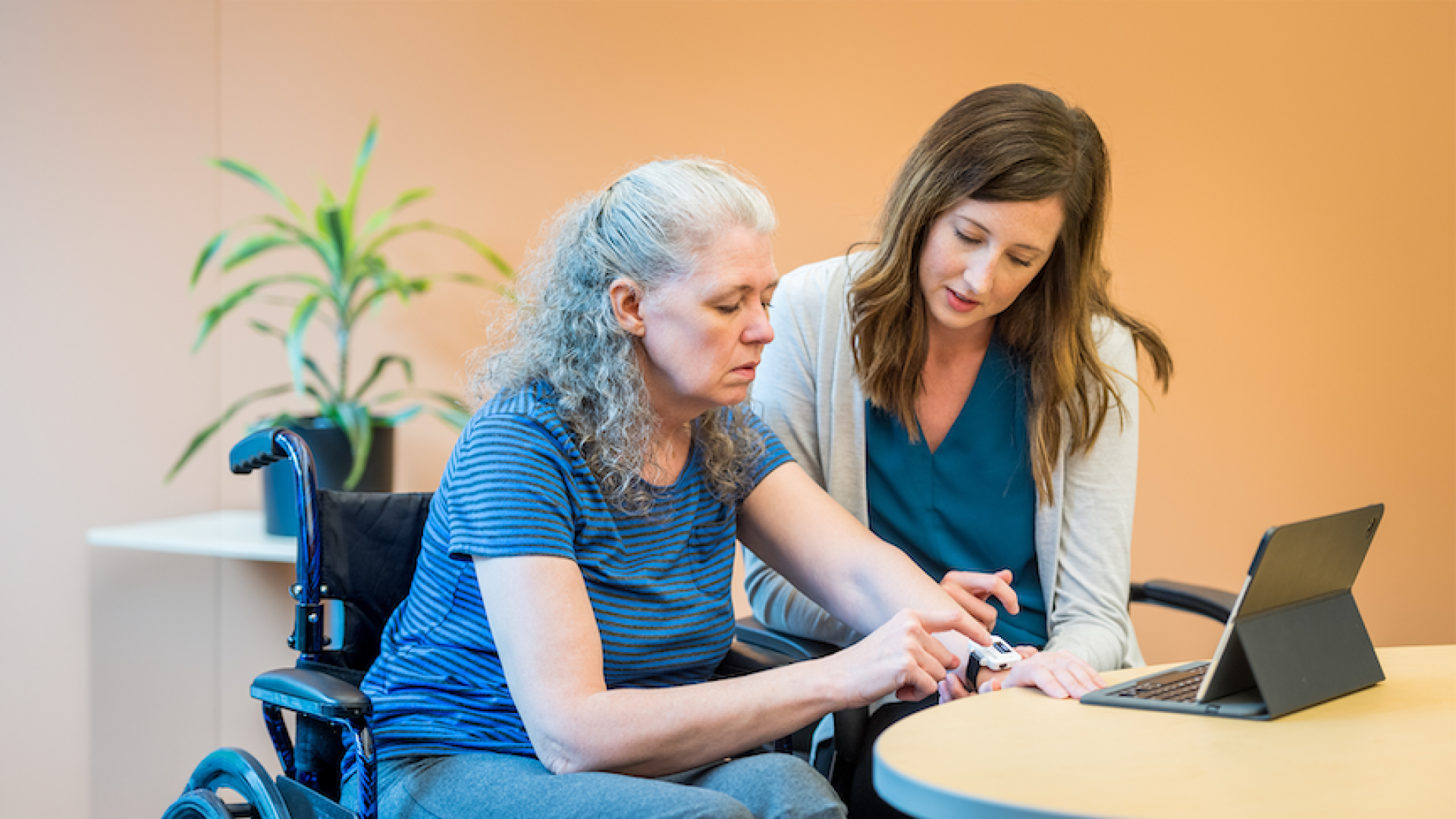The Kratz Lab conducts innovative clinical research to improve the quality of life for those living with pain, fatigue, and cognitive dysfunction.

Check out our other website, My MSToolKit: a free website for people with MS to help manage their symptoms.

Below are some news articles highlighting our research:
Pain
Chronic Pain Acceptance and Opioid Use featuring Dr. Kratz
Pain Acceptance Reducing Reliance on Opioids featuring Dr. Kratz
Ultramarathon Runners and Pain - Adaptive and Maladaptive Coping with Main featuring Dr. Kevin Alschuler
Cognition
Sleep and Cognitive Function in MS featuring Dr. Tiffany Braley
Physical Activity
RealTalkMS Podcast episode 179 - Exercise in MS featuring Dr. Nora Fritz at Wayne State, Dr. Kratz’s collaborator
Flexible coping is key to completing extreme athletic feats featuring Dr. Kevin Alschuler
Research Highlights
Free Online Toolkit Helps People with Multiple Sclerosis Manage Symptoms
Our research focuses on understanding people’s experiences with their symptoms, developing tools for symptom management, and performing clinical trials to improve people’s conditions.
We begin our research by considering how symptoms affect people’s daily lives. Current measurements, such as neuropsychological exams administered during a health visit, may not fully capture the momentary fluctuation of someone's condition. Many patients describe their symptoms—such as pain, cognitive function, or fatigue—as constantly fluctuating, with “good days” and “bad days” and further variation within those days. Consequently, our research seeks to capture such day-to-day experiences with symptoms. In one of our ongoing studies, CogDetect-MS, we use a combination of in-person tests and ecological momentary assessments (or EMAs), which is a period of “home monitoring” where participants complete surveys and wear an activity watch for a number of weeks after their in-person visit. This methodology not only reveals real-life momentary fluctuation but also enables us to recommend short- and long-term symptom management strategies.
While most research in this area focuses on finding treatments or cures, we recognize that people still live with pain and/or fatigue. Our research has found that behavioral changes can greatly improve the quality of life for people experiencing these symptoms. In one of our past studies, Pain Acceptance in SCI Study (PASS), we found that individuals who accepted their pain associated with spinal cord injury (or SCI) had lower use of pain medications and experienced less interference in their daily activities. By understanding and capturing the lived experiences of people with these symptoms, we can provide valuable information and practical tools to healthcare professionals and shape the direction of future research. These tools are also made accessible to people struggling with pain, fatigue, or cognitive dysfunction for immediate implementation (like our MyMSToolkit website available on our home page!)
Our research also involves clinical trials aimed at alleviating these symptoms. Many people with multiple sclerosis (MS) suffer from fatigue, and current options to mitigate fatigue are limited. However, these options may be more effective when used together rather than in isolation. Our previous study COMBO-MS considered this question and used cognitive-behavioral therapy (CBT), modafinil, or a combination of both to observe their effects on MS-associated fatigue. Currently, our lab is involved in another clinical trial—CANSLEEP-MS—that looks at the impact of cannabis (CBD and/or THC) on pain and sleep for people with MS.
By capturing momentary fluctuations, implementing behavioral changes, and conducting clinical trials, we create a comprehensive understanding of the impact current treatments can have on people’s daily symptoms. This insight is invaluable to impact research, inform healthcare providers, and ultimately enhance the well-being of those dealing with these symptoms.